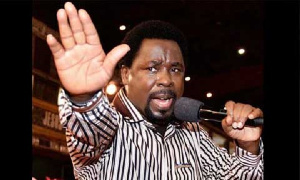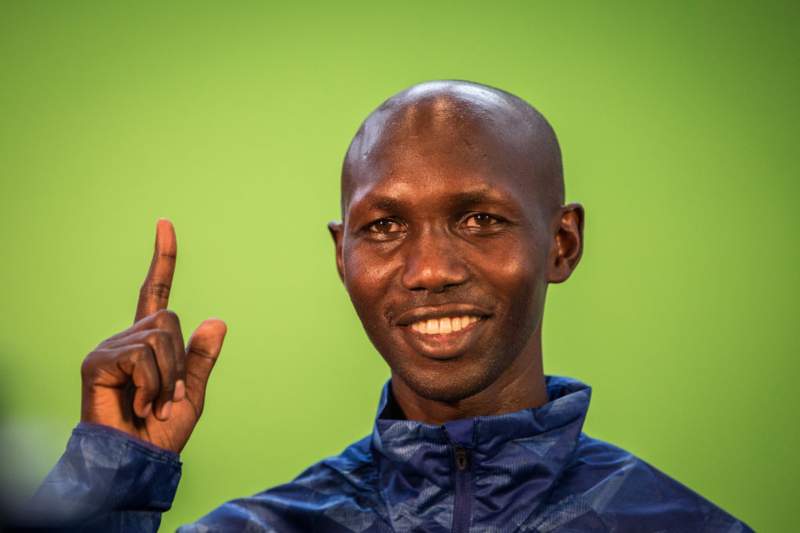News Africa
BRICS media forum emphasizes interaction and understanding between members

Under Russia’s BRICS presidency, Moscow hosted the 7th BRICS Media Summit on September 13-15, which gathered the heads of leading media outlets from the association’s member states and the countries that have applied to join BRICS+. It was primarily held to increase the role of the media in the process of shaping the future of a multipolar world.
It was founded at the initiative of Xinhua 10 years ago. Noting that BRICS+ is a real force with political, economic and humanitarian dimensions, it has become necessary to coordinate their actions in order to build a new and fair world order. In a video message to the guests of during the gala night on the occasion of the 120th anniversary of TASS, who include the participants of the BRICS Media Summit, Russian President Vladimir Putin expressed high hopes that the BRICS Media Summit contributes “to establish new business and friendly contacts within the association and to strengthen relations between member countries.”
The distinctive message Putin underlined was the importance of freedom of speech, the freedom to disseminate objective information in the era of developing multipolarity. Putin really stressed with a special tone the phrase: “real freedom of speech, which reflects different opinions, enables the search for compromises and common approaches to solving the world’s problems.” And that media has to play a significant role in building a just world order by giving people “an objective and unadulterated picture of the world,” Putin said to admiration of the guests at the World Trade Centre.
“In the year of Russia’s BRICS chairmanship, our Chinese friends supported our suggestion with enthusiasm and I sincerely thank our colleagues from Xinhua and, above all, the agency’s head, for supporting us in organizing this. This just illustrates the strategic partnership of Russia and China already at the level of media outlets,” TASS Director General Andrey Kondrashov said during the summit’s opening session.
Russian Foreign Minister Sergey Lavrov, in a video message, asserted the necessity to intensify information exchange and emphasized the role of the media in the development of transnational interaction. “Media cooperation within the framework of our group continues to strengthen. We are observing the intensification of information exchanges and the general increase in interaction between the media outlets of member states,” the top Russian diplomat said.
Lavrov noted that the summit is for the first time organized by “TASS – one of the leaders of Russian and international information space,” with the assistance of China’s Xinhua. He found it rewarding that the summit was also attended by representatives from other countries of the Global South in addition to BRICS members.
The plenary session on the “Role of the BRICS Media Community in Strengthening Stability and Cooperation in a Multipolar World” was held, with the participation of President of the CMA Group media holding Jose Juan Sanchez, Secretary General of the People’s Daily newspaper Yu Jijun, Director General of the National Media Group Svetlana Balanova, Editor-in-Chief of the Rossiyskaya Gazeta Vladislav Fronin, Director General of the Emirates News Agency (WAM) Jamal Al Kaabi, Executive Director of the South African Broadcasting Corporation Nomsa Chabeli, Director of Public Relations and Strategic Partnerships of the Ethiopian News Agency (ENA) Johannes Wondirad, Director General of the National News Agency ANTARA (Indonesia) Ahmad Munir, Deputy Director General, Editor-in-Chief of the Anadolu News Agency (Turkey) Yusuf Ozhan, Minister of Information of Myanmar Maung Maung On and President of the Prensa Latina news agency (Cuba) Luis Enrique González Acosta. The plenary session was followed by a formal signing ceremony.
Brazilian CMA Group President Jose Juan Sanchez noted the level of extent, how the BRICS+ has worked on preventing the spread of false information in the world. According to Jose Sanchez, BRICS+ has to make initiatives, to integrate mass media in different countries. It is necessary to always look for true information, not fake news. Fake news is something that seriously poisons the modern society due to the very rapid development of the Internet. The Brazil delegation interacted with traditional BRICS participants, raised fierce criticisms over the imposition of Western sanctions against Russia.
Tarek Abdel Ghaffar Tawil, Editor-in-Chief of the Middle East News Agency (MENA), shared his opinion about the fact that, within the changing geopolitical context, the importance to expand cooperation in the media field, to hold substantive discussions on the issues of mutual interest, in particular the fight against disinformation and the spread of news that misleads the audience.
Ghaffar Tawil described the Moscow meeting “as a unique platform which provides an opportunity to explore the topic of developing a joint strategy for accurate and objective coverage of events taking place in the BRICS countries.” According to the MENA chief, promising areas of media outlets’ cooperation within BRICS “include news exchange, mutual use of photo and video materials, and training of young journalists.” According to Tawil, special attention should be paid to joint studying of issues linked to artificial intelligence (AI) application.
The summit participants resolutely condemned Western pressure on media outlets in member countries and around the world. BRICS+ is a platform designed to improve information exchanges and promote frequent interaction among media practitioners, and deepen mutually beneficial cooperation. Under the BRICS umbrella, media exhibition was held as part of the mid-September summit.
The final effective working day, Zhou Xiaozheng, who heads the foreign news service of China’s Xinhua news agency, was joined by heads of media outlets and government officials from Venezuela, India, Iran, Russia and Switzerland. The delegates summed up the results of their two-day work and adopted the final declaration of the BRICS Media Summit.
The final declaration adopted unanimously on Sept. 15 agreed on facilitating the construction of a fair multipolar world order using their information resources, and strictly observe the norms of international right and principles of equality, respect of sovereignty of BRICS members. The media outlets from BRICS+ together with participating observers unreservedly confirmed their collective commitment to the principles of unbiased journalism based on facts and further expressed readiness to coordinate efforts on fighting against disinformation.
About the exhibition: The BRICS Family photo exhibition showcases works by photo-journalists from the member countries of the association: Brazil, Egypt, India, Iran, China, UAE, Russia, Saudi Arabia, Ethiopia and South Africa. The exhibition reflects the cultural and religious characteristics of different peoples today.
During the interactions, there were also series of memorandum of understanding on the sidelines which stipulated that each side provide assistance and support to reporters and representatives of the other. It further requested the sides to grant each other the right to use their text news, and agreed on mutual visits of their staff to exchange experience in journalism, marketing and new technologies of information processing and transmission. The TASS News Agency organized the summit. The Roscongress Foundation generally manages the events of Russia’s BRICS chairmanship.
By description, the BRICS Media Forum is a non-governmental non-profit platform for a dialogue between the lead BRICS member states mass media. It involved media leaders from 45 countries. It was established in 2015 under the Xinhua initiative. BRICS+ is an informal association made of Brazil, Russia, India, China and South Africa. The newest members of BRICS who joined in January 2024 (Ethiopia, Egypt, Iran and the United Arab Emirates) offering it a wider global coverage to the association. The ten BRICS+ countries account for 46% of the global population and around 30% of the global economy. Russia assumed the one-year rotating chairmanship of the BRICS+ on January 1, 2024. Russia’s presidency now heads to its culmination in late October Summit in Kazan, Tatarstan, in Russia’s Volga region.
Source: Thepressradio.com| Kestér Kenn Klomegâh





